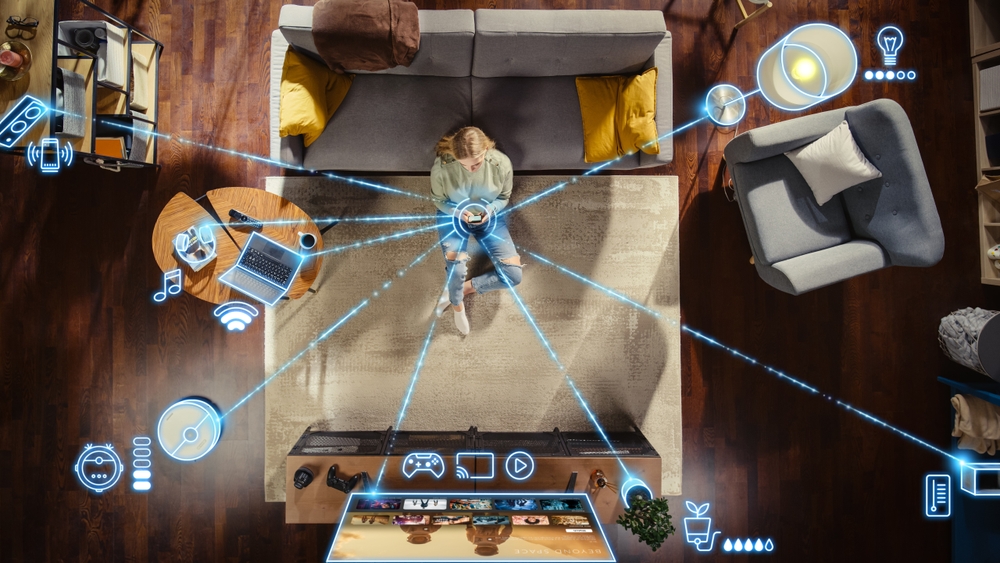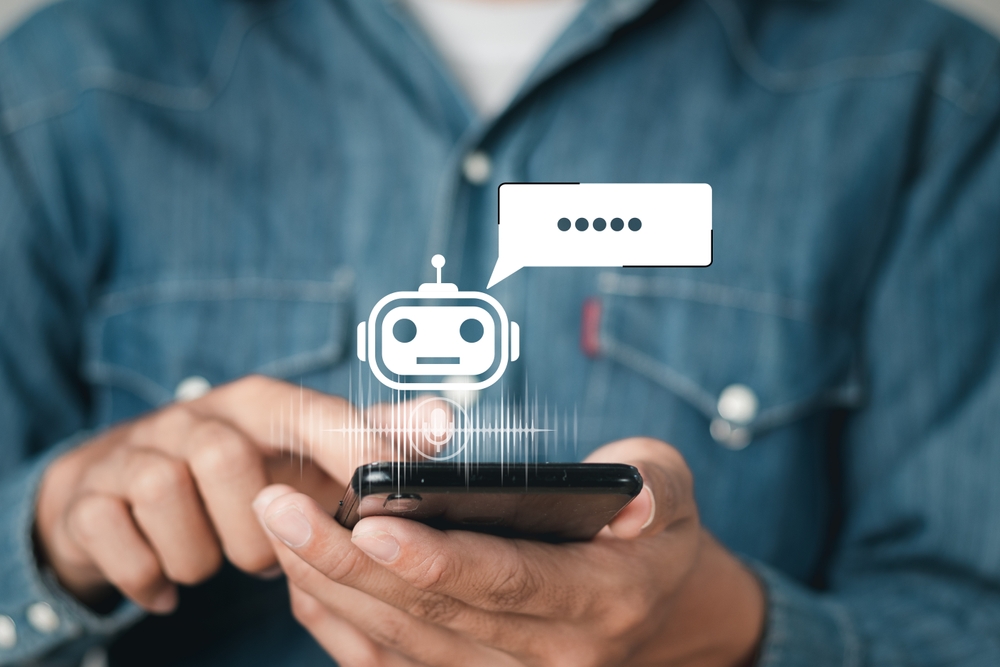One of the key aspects of the development of modern business is the appropriate use of new technologies and adapting to changes in this field. An innovative solution that is currently changing the face of marketing and PR in a special way is artificial intelligence. The revolution is happening before our eyes. AI tools collect data on a grand scale, automate advertising processes, research target groups and increase the effectiveness of promotional activities. All this to - ultimately - support building the brand image and increasing profits. We discuss the most important aspects of combining artificial intelligence and PR activities!
What will you learn from the article?
The text introduces knowledge about what artificial intelligence is, what applications it has and how it can contribute to improving and increasing the effectiveness of marketing and PR activities. AI allows for the automation of some processes, data analysis, audience segmentation and personalization of communication. Why use artificial intelligence? What are the benefits and challenges of using AI, and what are the future prospects for AI technology in the marketing industry? What should you remember when using the potential of artificial intelligence for the good of the brand and increasing customer satisfaction? The answer to each of these questions, along with valuable tips, can be found below.
- What is artificial intelligence?
- Applications of artificial intelligence
- Technological revolution – from data analysis to campaign implementation
- How does AI improve marketing activities?
- Benefits and challenges of using AI
- Examples of tools helpful in marketing and PR activities
- AI in marketing and PR – future prospects
What is artificial intelligence?
AI (short for “Artificial Intelligence”) – what is it? It is the ability of artificial systems to exhibit activities characteristic of intelligence, such as learning, interpreting data from the external world, reasoning and adaptation. Why is the intelligence of machines and computer programs referred to as artificial? This is due to the fact that behind all operations performed by AI are algorithms created by humans. Intelligence is therefore not an innate feature of systems, but only a machine simulation of the operation of natural intelligence.
However, the term "Artificial Intelligence" refers not only to the phenomenon itself, which is the manifestation of intelligent behavior by machines. This term also includes all science and technology developed for this purpose, based on interdisciplinary knowledge of thought processes.
The field of AI differs from tasks that do not require the use of artificial intelligence by machines in that the solutions it uses perform tasks that are impossible to achieve through numerical algorithmization.
Applications of artificial intelligence
What is AI technology best suited for? There are many areas of its current and potential application. Starting from tasks that make people's everyday lives easier, through supporting work, ending with saving human health and lives.
Examples of artificial intelligence in everyday use include the Internet of Things (network-controlled devices, including TV and household appliances), online shopping, as well as digital assistants on phones and computers, such as Google Assistant. In addition to this widely known tool, Windows 11 users can also use the Cortana service.
What is this digital assistant used for? Just like the widely known Google Assistant, Cortana supports voice queries using the search engine. However, she, using Microsoft Edge, references a database collected by Bing, not Google.

In addition to these types of basic tools, work can also use tools for database analysis and forecasting based on them. Chatbots can be helpful in carrying out some tasks, creating texts based on user expectations, access to website data and their algorithms. The industry also uses machines and systems specialized in performing complex tasks, taking into account the need to learn and adapt to changing conditions.
Technological revolution – from data analysis to campaign implementation
As we already know, AI (artificial intelligence) are tools and programs that imitate the human mind. Using machine learning, image recognition and natural language processing. Advanced, extensive algorithms operating within artificial intelligence analyze in detail the relationships between various elements and then automatically recreate them. Simply put, AI learns itself and uses this knowledge.
The origins of artificial intelligence date back to the 1950s. Since then, the technology has gradually developed. Now - after last year's premiere of the ChatGPT Open AI chatbot - we can talk about a real revolution and expansion of the digital mind. Which of the possibilities offered by this modern technology are particularly useful in public relations and marketing?
In marketing itself, AI has been used for decades. Initially, it was primarily based on statistical algorithms. They were used to show trends or forecasts. AI was also based on algorithms designed to segment the market and understand the diversity of target groups. Over time, companies began to use them to increase the personalization of their offers.
Today, AI determines the way promotional activities are shaped in a very diverse and intensive way. Machine learning is used on websites, social media, search engines and the e-commerce market. AI is certainly no longer a novelty or idea, but a concrete support in PR activities smaller and larger businesses.
Statistics confirm this. Over 80% industry experts are incorporating some form of AI technology into their marketing efforts. 88% marketers believe that in order to remain competitive and meet the expectations of their customers, they must implement these tools [source: https://mailchimp.com/intuit-mailchimp-finds-vast-majority-of-smb-marketers-are-bought- into-ai/].
How does AI improve marketing activities?
Currently, the use of AI in marketing is very wide. Primarily:
- automation of many processes;
- fast and detailed data analysis;
- audience segmentation in terms of specific criteria;
- forecasting consumer behavior and predicting trends;
- personalization – selecting advertisements to suit the recipient's preferences or sending personalized e-mails;
- support in content marketing planning and content preparation;
- researching campaign results;
- customer service via chatbots.

Benefits and challenges of using AI
As a result, the use of AI in marketing brings a number of benefits. The digital mind allows you to quickly obtain detailed data and process it, get to know and understand the target group, and then adapt messages to their needs and preferences. It streamlines operations by relieving employees, especially in tedious, repetitive and time-consuming activities. Thanks to this, they can focus on strategic or creative work. As a result, it increases the efficiency of marketing activities.
Of course, like any breakthrough solution, artificial intelligence is not without its drawbacks. This means that it raises not only enthusiasm, but also some doubts. The first issue is the legal aspects (the issue of personal data protection) and the risk of using it for malicious purposes (cyber attacks, fraud or manipulation). A company that wants to implement AI into its operations should be aware of these threats and take appropriate protective measures.
Another issue is the limitations of the AI itself. Let's remember that she is not human. She lacks creativity, emotional intelligence and flexibility. Moreover, he cannot build relationships, does not recognize the context, and does not verify the authenticity of the sources he uses. It is a great tool, but in the hands of competent, prepared people, i.e. under appropriate supervision. If we want the company's messages to be valuable, unique, creative and tailored to the context, we must remember that what AI gives us can constitute a basis for further work, verification and "polishing".
Do you need support in developing your company?
Modern PR has no secrets for us!
Examples of tools helpful in marketing and PR activities
Digital Assistants (e.g. Microsoft Cortana, Apple Siri) – predictive chatbots, i.e. computer programs that simulate conversations with people. Using machine learning based on user activity and natural language processing, these programs personalize conversations, answer complex questions and provide advice. Digital assistants in companies can manage incoming communications, provide general information, coordinate internal marketing activities and much more.
Brandwatch – is an advanced tool designed to track social media conversations about brands to learn about their social reception. Thanks to this tool, PR activities can be more relevant to the current mood, and how the brand or product compares to the competition is constantly monitored.
Synthesia – text-to-video converter. It allows you to create avatars for customer service, as well as low-budget video materials.Canva – a simple tool for creating graphic materials. Includes initial template designs and an image generator based on your description.
AI in marketing and PR – future prospects
The transformative power of AI seems to be unstoppable. Specialists indicate that in accordance with marketing trends for 2024, the following areas of AI in promotional activities will be subject to improvement: advertising targeting, more efficient chatbots, greater use of predictive analyses, refinement of research and analyses.
Currently, artificial intelligence is accepted in marketing as a powerful tool for analysis, personification, creating content and shaping relationships with customers and building their unique experience. The use of AI ultimately turns out to bring results for both the company and the recipients of its offer. So the point is to use this potential wisely. Then AI may prove to be a truly valuable ally in promotional activities.


